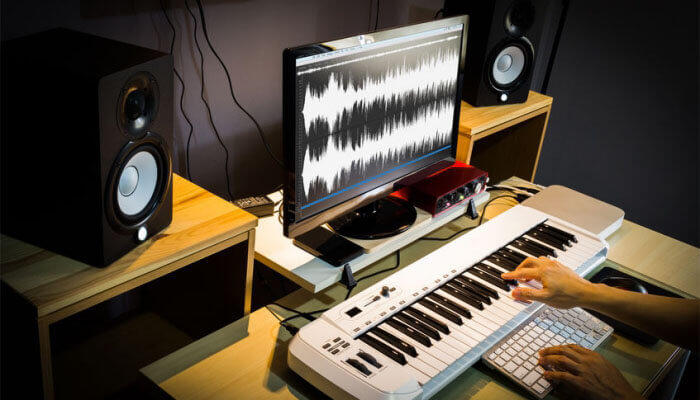If music is your passion and you’re talented with lyrics or sounds, it’s only natural to start taking your hobby to a new level. Nowadays, it’s easier than ever to become a professional singer or player from the comfort of your own home. All you’ll need to get started are these gadgets and accessories.
A good computer
Creating new music is less about voice and lyrics and more about handling recording programs, and coming up with cool effects that will lead to new sounds. Therefore, the first item you will want to start with is a computer.
Recording studios are almost all digital nowadays, so it’s mandatory to know how to work with sophisticated tools if you plan on having a music career. And, although there are plenty of models available for less, most beginners and pros suggest you invest in an Apple laptop or desktop.
The Macbook Pro remains amongst the most popular choices for players, sound technicians, and DJs. It is lightweight and extremely portable and, with the help of the right accessories, you can create new music anywhere you are.
A DAW
The digital audio workstation or the DAW is the main software you use to mix, edit, and record music on your computer. There are plenty of software options on the market, depending on your budget and the style of music you wish to create.
The most popular DAW remains Pro Tools, as it can be successfully used by studios of all levels, including amateur ones.
Audio interface
Once you have acquired your DAW and computer you can start recording music. However, you will still need an audio interface to create all necessary connections to send your music out of the computer during playback and into the computer when recording.
Originally, this was the only purpose of an audio interface but newer models also provide digital conversion, headphone amps, monitor management, and other functions.
Professional recording studios have a stand-alone unit for each of these functions but those who are looking to save money on their home studios can pick up a unit that gathers all these functions.
A good microphone
Moving on to the fun side of your new recording studio, you’ll need a professional microphone. Believe it or not, microphones have existed long before recording studios were even a thing. Yet, these devices seem to have remained pretty much the same in the past half a century.
In fact, many models from 50 years ago remain among today’s industry standards so you will never fail if you choose a classic. However, picking the right microphone is not an easy task as there are countless options on the market.
Professional recording studios carry 30-40 different mics or even more, each of them used to achieve a different sound from different instruments. Again, professional microphones can end up costing $400-500 or even more but there are plenty of other products you can get for less than that will deliver a similar sound quality.
Headphones
The first thing you need to remember is that “consumer” headphones have nothing to do with the pro ones used for recording. You may own a “sick” pair of Beats or any other cool brand but they won’t be enough to help you record and listen to your tracks in your studio.
Professional studio headphones fall into two main categories – closed-back headphones, and open-back headphones. There is no silver lining this time as you will need both pairs. The closed-back headphones are used for recording tracks, while the others are used for mixing.
A good pair will cost you around $300-400 or more, depending on the brand, quality, and features. No matter your choice, make sure they perfectly isolate the sounds so you can hear each beat crystal clear. We suggest you opt for brands like Shure, Sony, Sennheiser or Focal Spirit Professional.
Studio monitors
Last, but not least, some cheap studio monitors are also needed for full recording experience. In a perfect world, mixing is best done on special studio monitors. However, if you’re on a tight budget, headphone mixing and mobile recording have become common practices.
So, if you want to invest your money wisely, instead of buying a pair of closed-back headphones, you can opt for studio monitors. There are plenty of good options on the market, even for beginners and those who are on a strict budget.
In this case, don’t forget to properly soundproof your walls. Those who have just picked up mixing and recording might consider replacing their bedroom with another room of the house or even turning their entire garage or basement into a home recording studio.
The advantage of basements and garages is that they are already hidden locations, which makes soundproofing easier and more efficient, especially if you have difficult neighbors.

Leave a Reply